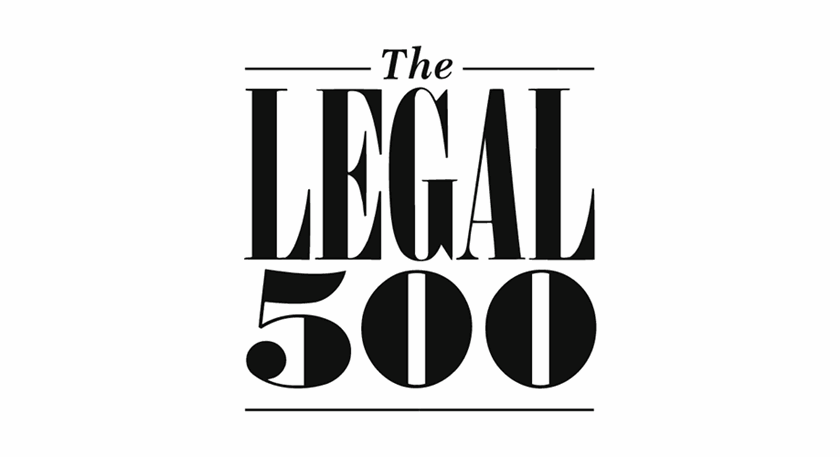New ISI Inspection Framework 2023
Insight

As schools begin to prepare for a new academic year, those inspected by the Independent Schools Inspectorate (ISI) will be aware that the new ISI inspection framework will come into effect from September 2023.
The new framework, known as "Framework 23", comes off the back of last year’s consultation into the new regime and replaces the previous framework published in 2016.
Since the last framework was published, we have seen a global pandemic, the rise of the Black Lives Matter and Everyone’s Invited movements, and a significant increase in poor mental health amongst pupils across all age ranges. The new framework aims to reflect on and consider the challenges pupils face in today’s world, and contains a number of changes to the previous framework.
While schools will be aware that in the past ISI published Commentary on Regulatory Requirements, for this cycle they have moved away from publishing the Commentary in its current form. ISI’s Inspection Handbook is also available to all on the ISI website and will be reviewed and updated regularly. The Inspection Handbook is primarily aimed at inspectors conducting routine inspections but is helpful reading for schools so that they are aware of the methodology of inspections.
We have set out below some changes schools should be aware of and some suggestions as to how they can best prepare for future inspections.
Emphasis on pupil wellbeing
The new framework places a strong emphasis on promoting the wellbeing of pupils.
Pupil wellbeing is defined in section 10(2) of the Children Act 2004 as:
- physical and mental health and emotional wellbeing,
- protection from harm and neglect,
- education, training and recreation,
- the contribution made by them to society, and
- social and economic wellbeing.
This definition is used as a starting point for ISI’s approach to school evaluations, making it vital that all school leaders keep this at the forefront of their minds when updating policies and reviewing their curriculum and values.
The new framework places an overarching responsibility of the school’s leadership, management and governance to “actively promote” these five aspects of pupils’ wellbeing in all aspects of school life. Governors need to be reminded of their responsibilities to ensure their school is fully compliant and aware of the measures they need to take in order to mitigate the particular issues their school faces.
A focus on pupil wellbeing was, of course, already part of the previous framework and the new framework emphasises that this approach does not place any additional responsibilities on schools that are not already covered in the Independent School Standards (the "Standards"). However, a key takeaway from the new framework is that this should be the priority for schools and that schools will be expected to provide evidence that they have reviewed and considered their provision of pupil wellbeing (as defined above) and placed it at the centre of their school. This can be demonstrated by pupil-led initiatives, opportunities for discussion and debate while providing support, and education to prepare and equip pupils for life after school. The PSHE / RSE curriculum and delivery will also be of greater importance to inspectors, including how it is received and rated by pupils.
Emphasis on pupil voice
The new framework emphasises that schools need to actively seek and take into account pupils’ views, wishes and feelings about their school experience. School leaders should enable pupils to communicate, develop positive relationships with staff, and make their views known.
The ISI has come up with a "three levels approach" to school culture experienced by pupils. Level one is the positive outward face of the school community: for example, what is evidenced on the school website and documents and at displays and performances, prize giving, open days and tours. Level two is the day-to-day experience of the school community, which most pupils tend to agree is generally positive. Level three is when some members of the school community are impacted by negative and damaging behaviours such as racism, misogyny and bullying. Level three aspects are usually hidden from view and can be more difficult to evidence.
Inspectors will consider all three aspects of school culture and will be seeking to speak to pupils during their inspections and take their views into account. While this has taken place under the previous regime, greater emphasis will be placed on answers given by pupils.
Schools can ensure that they are engaging with pupils by establishing appropriate pupil-led initiatives and forums, creating safe spaces and facilitating discussions led by staff as well as in the delivery and content of PSHE lessons. Having a generic school council with little structure or agenda will not be sufficient. Schools are expected to put in place multiple opportunities for pupils of all age ranges to be involved in education and debate, where views raised are fed back to staff. Examples of involving pupils in decision-making, where appropriate, should be recorded and built upon.
School leaders can ensure that engagement with pupils is taken seriously by making pupil voice a standing item on the agenda for Governors’ meetings, as part of maintaining and evidencing an effective culture of safeguarding. Governors should hear directly from pupils at various occasions throughout the year, either from school visits or from presentations and engagement with pupils. Governors will be expected to provide evidence of their knowledge that pupil voice is given a high priority and will be asked how school leaders enable voices which may be harder to hear to be heard, so that leaders can ensure appropriate strategies are in place to support these pupils.
Governors will need to demonstrate not only their knowledge of issues facing their pupils, but they will also need to evidence the training they have received in order to better understand the situations. Governors will then be able to communicate the measures they have put in place to mitigate the problems: for example, provision of effective and complaint policies, which are regularly reviewed and evaluated, all of which contribute to creating a healthy and safe environment for the school community.
Structure of reports
The structure of the inspection report will be as follows:
1. Summary of overall inspection findings
This will provide readers with an evaluative overview of the main inspection findings, including the extent to which the school meets the Standards, in relation to the sections below.
2. Section 1: Leadership and management, and governance
Inspectors will evaluate and report on how leaders and managers at all levels throughout the school demonstrate good skills and knowledge appropriate to their role and how they fulfil their responsibilities effectively to ensure that the Standards are met.
This includes (but is not limited to) ensuring that the school's aims and ethos are available in writing to parents and staff, that appropriate information is made available, and that there is an effective complaints procedure in place.
3. Section 2: Pupils' education, training and recreation
Schools should familiarise themselves with the teaching, learning and assessment criteria found in the new framework.
The new framework places an emphasis on ensuring that policies, plans, schemes of work, teaching and assessments take into account the needs of pupils who are identified as having special educational needs and / or disabilities (SEND). The senior leaders must also ensure that pupils are not discriminated against, paying particular regard to the protected characteristics set out in the Equality Act 2010, and they must proactively consider the need to make reasonable adjustments for pupils with a disability.
4. Section 3: Pupils' physical and mental health and emotional wellbeing
Schools should ensure that there is effective implementation of appropriate plans, schemes of work, and programmes of activities that are appropriate to pupils' needs for both physical education and personal and health education.
The framework specifically mentions the need for pupils to receive either relationships education or relationships and sex education (as applicable) in line with the Standards and relevant legislation. As stated above, an effective PSHE / RSE curriculum must be in place and delivered by teachers that have been specifically trained. Evaluation of these lessons is also integral to providing an education that is consistent with the ISI framework and level of expectation.
Inspectors will also be looking to ensure that school leadership promotes good behaviour and that there is an effective behaviour and sanctions policy that is understood by both staff and pupils and implemented fairly and consistently.
There is also emphasis on schools having an effective anti-bullying strategy, including training for all staff to recognise and deal with bullying and child-on-child abuse, to include harmful sexual behaviour. Opportunities for pupils to speak out and report incidents of bullying must be in place with evidence to show that the school has reacted appropriately and adopted a “lessons learnt” strategy. Schools will need to acknowledge that these incidents happen and that they are responded to in line with the school policies. These policies should be updated and amended in light of specific incidents where more appropriate responses, action and steps could have been followed.
5. Section 4: Pupils' social and economic wellbeing and contribution to society
Schools must ensure that pupils are effectively prepared for the opportunities, responsibilities and experiences of life in British society. This can be evidenced through a thorough PSHE / RSE curriculum details of which are set out further in the new framework.
6. Safeguarding
Safeguarding continues to be at the forefront of inspections. Inspectors will check to verify there are arrangements in place to safeguard and promote the welfare of pupils and meet the expected standards and provisions as set out in the relevant legalisation and statutory guidance. Inspection findings with regard to safeguarding will be based on the evidence available to inspectors at the time of inspection and includes (but is not limited to) reviewing safeguarding policies, systems and processes, ISI survey responses, records and documents (including records of reporting to external agencies) and scrutiny of the single central register.
The new framework specifically mentions the need for schools to have effective arrangements to ensure that pupils know how to stay safe online and that these are regularly updated and reviewed. Schools can ensure they meet these criteria by having an effective PSHE curriculum in place as well as an Online Safety Policy (either standalone or incorporated into the Child Protection and Safeguarding policy), which is appropriate for the ages and needs of the pupils. It should cover all aspects of staying safe online and must include appropriate provision to have monitoring and filtering systems in place. Again, these policies should be regularly reviewed and updated after incidents.
Style of reports
The ISI Inspection reports promise to be written in clear and unambiguous language.
ISI will now provide nuanced evaluations: there will no longer be overall judgements / grades. Inspectors will report on each of the sections above, giving supportive evidence of their findings, and will recommend next steps where standards are met and / or give an overview of areas for action where standards are not met.
Inspectors may also highlight any areas of provision that have been identified on inspection as significant strengths. In evaluating significant strengths, inspectors must be able to identify as part of their ongoing inspection activity without signposting from school leaders that the significant strength of provision fulfils the following criteria:
- shows a deep understanding of and aspiration for pupils' development of knowledge, skills, and understanding,
- is attributable to the knowledge, skills and decision making of leaders, managers and / or staff, and
- has very clear and highly beneficial impact for pupils involved, with consideration and mitigation of risk of detriment or denial of opportunity to other pupils.
Where standards are unmet, inspectors will highlight this in the report and state whether there are serious and / or multiple failings in the school's provision. Serious and / or multiple failings in the school’s provision will be notified immediately following the inspection to the Department for Education (DfE) so that enforcement action can be considered as a priority.
How schools will be inspected
There will now only be one type of routine inspection as opposed to two, and it is anticipated that each school will be inspected routinely every three years or so on all of the standards.
There will be three types of non-routine inspection:
- material change: will take place when a school applies to change the terms of its registration with the DfE,
- progress monitoring: when a school has failed to meet the Standards on a scheduled inspection, it will be visited a second time to inspect for improvement, and
- when the DfE has a reason for a school to be inspected urgently. This may come off the back of a parental complaint or press reports after a specific incident where the DfE is alerted to alleged poor performance.
Schools will be given a maximum of two days’ notice for routine inspections. Usually, the school will be notified by a telephone call from a member of the ISI delivery team the day before the onsite inspection commences. Where the DfE intends to inspect a school, they specify the notice period to be given for non-routine inspections. If the inspection is to be unannounced, the school is usually contacted up to an hour before the inspection team arrives on site.
The methodology of the inspections will be based on four principles:
- Manageability of inspection: the focus of onsite inspection is to see the school in its day-to-day operation and to hear the views of pupils. The ISI has stressed that it wants to minimise disruption to schools. The inspection process will not expect schools to produce documents specifically for the inspection nor collate sample of pupils’ work in advance of the inspection. Ahead of the inspection, inspectors will usually request to see copies of the school’s aims, timetables, staff list, current staff absences and proprietor/s’ names, so schools should ensure these documents are kept up-to-date and are easily accessible. Policies and procedures should also be up-to-date and, if applicable, easily accessible on the school’s website.
- Collaboration with the school: as before, the reporting inspector will have regular "keeping-in-touch" meetings with the headteacher to notify them of emerging evidence and allow headteachers to signpost inspectors to any additional evidence. Inspectors may also offer to review evidence with school leaders so that the school can provide context to the evidence.
- Triangulation and typicality of evidence: inspectors will speak with as many people as possible, including pupils, staff, parents, senior leaders, the proprietor/s, governors and the Chair of Governors. They will also gather evidence from first-hand observations, responses to the inspection surveys for pupils, parents and staff, and scrutinise school records and documents. Inspectors will look for connected sources of evidence. For example, if pupils raise an issue in their discussions with an inspector, inspectors will look for connected evidence to contextualise and "test" the evidence. ISI does not want schools to do anything for the inspection that they would not normally do (for example, there is no need to reorganise timetables, change or cancel trips or cancel visitors who were due to visit the school; they have made it clear that they wish to "work around" those things). The absence of a headteacher will not normally be a reason for postponement. In the absence of the headteacher, the most senior member of staff at the school will be notified. Postponements can be requested in writing to the ISI, who will pass on the request to the DfE for consideration.
- Proportionately: Inspectors will exercise their professional judgment when considering the reasonableness of leaders’ decision making and pupils’ experience in the school. For example, where schools have effective policies and procedures in place but there has perhaps been a minor oversight in one instance, inspectors will use their judgment and think about proportionality in relation to whether the school has met the relevant standards and regulations.
How can schools prepare for the new framework?
It is important that school leadership, management and governance teams familiarise themselves with the new framework and ensure compliance with the Standards and Framework 23.
Schools should also ensure that their policies and procedures are up-to-date and easily accessible to staff, pupils and parents, usually by being published on the school website or pupil and parent portal.
This publication is a general summary of the law. It should not replace legal advice tailored to your specific circumstances.
© Farrer & Co LLP, September 2023






